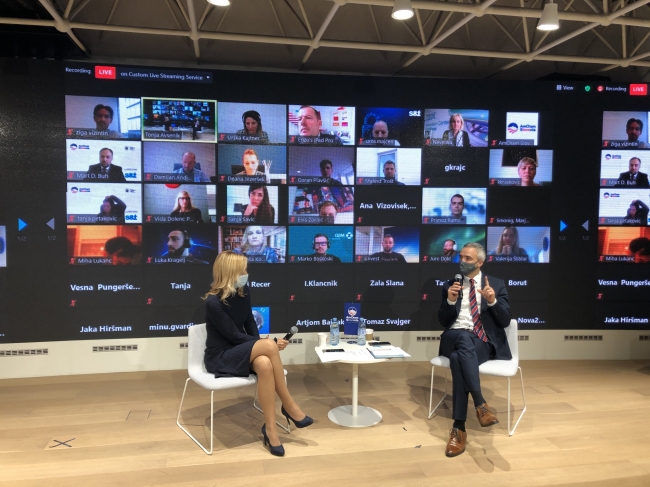The coronavirus pandemic has shown what work might look like in the future, AmCham Business Breakfast participants agreed. However, it also revealed the shortcomings of work from home, and Labour Minister Janez Cigler Kralj said that the government was aware of the challenges and was doing its best to address them.
The mass shift toward remote working has shown shortcomings in terms of companies’ preparedness and also in legislation, Sanja Savič of PwC Slovenija said at the online event. It has shown that the legislation is too rigid for this day and age, said Savič, wondering how it is going to get in the future. The minister agreed that administrative procedures needed simplifying and said that the ministry was trying to see to it that a simple labour contract annex would suffice for transition to remote work and that the relevant documents could be submitted to the relevant body online.
The reason why this has not yet been done is in the fact that the ministry has a lot on its hands at the moment. Moreover, such changes would interfere in systemic legislation, which the ministry wants to be discussed by social partners. Nevertheless, the ministry intends to file changes to the employment relationships act before the end of the year, Cigler Kralj said.
Enzo Smrekar, vice president of Atlantic Grupa and manager of the year 2020, shared the view that a number of shortcomings came to light, including such that are not directly linked to business operations and work, but significant nonetheless. This includes distress of employees due to long-term isolation. Work from home has also sped up restructuring of work places in many companies, showing that very different skill sets will be required in the future, said Nevenka Oštarjaš of IBM, asking the minister when may Slovenia expect measures for an education system of the future.
Cigler Kralj responded that the ministry and the government as a whole were doing the best they could, adding that to a degree employers and employees were the ones that have to speed up. The ministry offers a number of training courses as part of its active employment policy, but there is not much demand. Ajša Vodnik, director general of AmCham Slovenija and vice president of AmChams in Europe, meanwhile asked the minister about long-term care, with Cigler Kralj saying the key challenge was to make it inclusive and accessible to everybody.
Smrekar said that the state could help in this field by encouraging active private saving. “We’d need effective pension funds creating adequate yield for people while the state would have financial means for investments.” The minister responded that a lot still needed to be done to raise awareness that the state cannot take care of everything because it resources are limited.
Source: STA
You can watch the event HERE.
